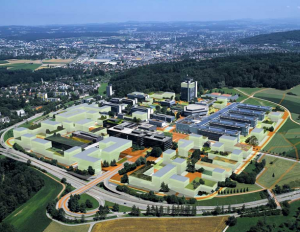 Universal – Specific. From analysis to intervention?
Universal – Specific. From analysis to intervention?
« No one sees the Earth globally. »
Or: « A crowded place of risk and unwanted consequences. » (B. Latour, 2011)
The universal – specific opposition has been central to epistemological debates and methodological shifts within the history of most (if not all) scientific disciplines. An equivalent dualism confronts artists and architects addressing a wide audience and/or planning and realizing transformative or critical interventions that involve both local factors and a range of far-reaching political, social or economic constellations and processes. This conference, in continuing our efforts to promote dialogue between the history of art and the history of science, is an experiment, in that it sets out to connect these two different perspectives on conflicts between universals and specific phenomena.
The universal – specific opposition has historically concerned the relation between so-called “natural“ laws or “typical“ properties and individual subjects, objects, sites, and situations. Changing ways to deal with conflicts between the universal and the particular have shaped the history of scientific representation and the one of “objectivity“ as a concept. Thus, examining how the universal – specific dichotomy is addressed within individual disciplines is one way of tracing their development over time. Recently, philosophy of science has challenged us to refute the idea of a distanced viewpoint from which we see things (no matter of which consistency or scale and in which setting) as wholes and as independent from our own actions and interests. We have been taught that we need to consider not only scientific observations, but also abstracting concepts and models as resulting from processes of interaction and montage – as compounds, assemblages, compositions. Within art and architectural history, discussions about the universal and the specific often regard the entanglement between artistic and scientific strategies of representation. Or they address moments of intended or unforeseen collision between an artistic or architectural masterplan, a system of rules or an abstract model and the particularities of specific places, materials, subjects and situations. In various scientific disciplines, “global“ stands for such properties, variables and phenomena that are understood as independent from specific environments and as applying to a system as a whole. In its critical usage, the term points to generalizations and a neglect of differences. This conference will study (and proposes to challenge) the universal – specific dichotomy and its variations. It aims to explore historical and emergent approaches to the crucial question of how to navigate between global models and particular encounters.
CALL FOR PAPERS
We invite unpublished research from scholars working in the fields of history of art/architecture and science studies as well as from practitioners. We are particularily interested in work that strives to relate a theoretical approach to a case study in terms of specific strategies developed, techniques employed or problems encountered by researchers, artists or architects. Problems addressed may correspond but are not limited to the following:
How have differences between the universal and the specific been theorized, today and historically? – To what extent and for which purpose may generalizing explanations and predictions serve as a sufficient basis for planning and behavioural decisions? – What strategies have been developed by scientists, artists and architects to deal with the seemingly infinite number of global and local factors that might be involved (or interfere) with the realization of a project? – By which means are researchers, artists and architects attempting to control diverse cultural or individual particularities of their human subjects /audiences /users and how are they dealing with the limits of such control? – Which theories have they been relating to or which modelling techniques have they been using? Which theoretical concepts have proven useful in broaching the human factor in past and planned projects? – Can the critical impetus of post-colonial approaches, which challenge Western-centric claims of universality as well as certain aspects of cultural particularism by explicitly focusing on past and current interdependences be translated into a set of directives? – Are new technologies offering solutions? – In view of the global art and architecture market: how may we best continue to address problems of cross-cultural transfer or relations between “globalized“ forms and the particular cultural contexts in which these are realized and experienced? What are the limits of such binary thinking? – Which approaches offer an alternative to the universal-specific dichotomy? – Are there instances in which “complexity“ functions as a rhetoric mist, veiling decisions which are in fact based on simple, straightforward interests and calculations?
A publication of suitable contributions is planned.
Submission of Abstracts
Prospective speakers/authors are invited to submit an abstract of up to 400 words (+ 1 optional page of references and/or figures, if deemed necessary) and a short CV (pdf) by
28 July 2013 via e-mail to: nina.zschocke (at) gta.arch.ethz.ch.
Language: English or German.
We will cover the expenses for travel (economy) and accomodation for authors whose papers will be selected for presentation.
ProDoc Art & Science
Funded by: Swiss National Science Foundation (SNF)
Prof. Dr. Philip Ursprung, History of Art and Architecture, ETH Zurich
Prof. Dr. Bernd Nicolai, History of Architecture and Preservation, University of Berne
Prof. Dr. Dario Gamboni, History of Art and Architecture, University of Geneva
Prof. Dr. Vincent Barras, History of Medicine, University of Lausanne
Prof. Dr. Victor Stoichita, History of modern and contemporary Art, University of Fribourg
Contact
Dr. Nina Zschocke (concept & organization):
ETH Zurich, Department of Architecture, Institute for the History and Theory of Architecture
W-Pauli-Str. 15, CH-8093 Zurich, Email: nina.zschocke (at) gta.arch.ethz.ch
Link: http://prodoc.gta.arch.ethz.ch/events/universal-specific

Leave a Reply
You must be logged in to post a comment.